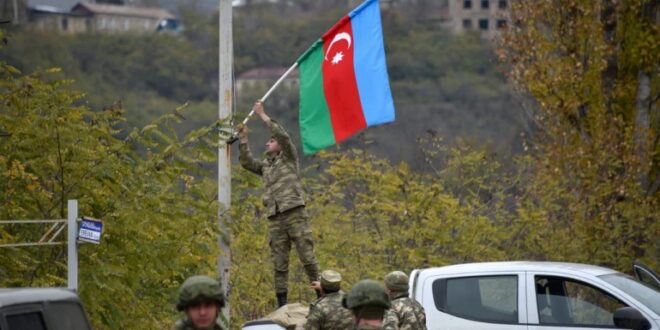Dozens of Armenian soldiers have reportedly been killed in renewed border clashes between Armenia and Azerbaijan.
Dozens of Armenian soldiers have reportedly been killed in renewed border clashes between Armenia and Azerbaijan, in the worst fighting seen since the hostile enemies were embroiled in a 2020 war over the disputed Nagorno-Karabakh region.
After several hours of fierce border fighting overnight on Tuesday, Armenia appealed to world leaders for help, saying Azerbaijani forces were trying to advance on its territory.
Prime Minister Nikol Pashinyan has demanded from world leaders “an adequate reaction” to “Azerbaijan’s aggressive acts”.
Russia, Armenia’s closest ally, said it had convinced the historic rivals to agree to a rapid ceasefire.
What happened?
Armenia said that Azerbaijani forces “launched intensive shelling, with artillery and large-calibre firearms, against Armenian military positions in the direction of the cities of Goris, Sotk, and Jermuk” shortly after midnight.
Azerbaijan’s defence ministry accused Armenia of “large-scale subversive acts” near the districts of Dashkesan, Kelbajar and Lachin on the border, adding that its army positions “came under fire, including from trench mortars”.
Elnur Mammadov, Azerbaijan’s deputy foreign minister, said: “Armenia has been shelling Azerbaijani military positions for a few weeks now. That shelling has been intensified over the last few days. Armenia has started amassing heavy weaponry and armaments along the deemed border between Armenia and Azerbaijan. What happened overnight is a large-scale provocation by Armenian military against Azerbaijani positions as well as the shelling of employee and civilian infrastructure.”
According to Pashinyan, 49 Armenian soldiers have been killed, with the number expected to rise.
Azerbaijan’s defence ministry said 50 military personnel died during the overnight clashes.How did world leaders react?
Turkey, a close ally of Azerbaijan, told Yerevan to “cease its provocations” against Baku, with foreign minister Mevlut Cavusoglu saying on Twitter that the country should instead “focus on peace negotiations and cooperation” with its neighbour.
US Secretary of State Antony Blinken said Washington was deeply concerned about reports of the attacks, and urged “an end to any military hostilities immediately”, adding that “there can be no military solution to the conflict”.
Russia said it was “extremely concerned” by the uptick in fighting.
Charles Michel, the president of the European Council, said the bloc was “ready to make efforts to prevent further escalation”, adding that there was “no alternative to peace and stability in the region”.Has a ceasefire been reached?
Russia’s foreign ministry said it succeeded in brokering a truce that began at 9am Moscow time (06:00 GMT). “We expect that an agreement reached as a result of Russian mediation on a ceasefire … will be carried out in full,” the ministry said in a statement.What’s the background of the conflict?
At the heart of the conflict between the former Soviet republics is the highly contested Nagorno-Karabakh region, where two wars have been fought over in the 1990s and more recently, in 2020.
The enclave is internationally recognised as Azerbaijani territory, but it is populated with ethnic Armenians who either want to secede or join Armenia.
Azerbaijan considers ethnic Armenians to be illegally occupying their land.
At least 30,000 people were killed in the conflict following the collapse of the Soviet Union in 1991, after ethnic Armenian separatists broke away from Azerbaijan.
The six-week war in 2020 over Nagorno-Karabakh killed at least 6,500 people and ended with a Russian-brokered truce.
Under the deal, Armenia ceded swaths of territory it had controlled for decades and Moscow deployed about 2,000 Russian peacekeepers to oversee the fragile ceasefire. Eurasia Press & News
Eurasia Press & News




